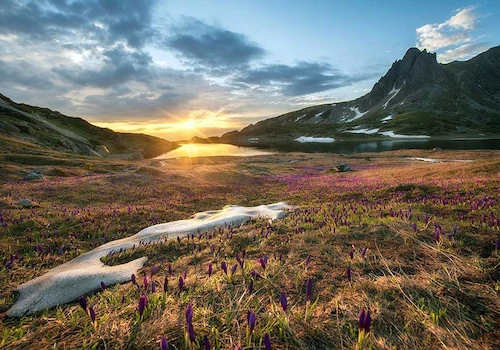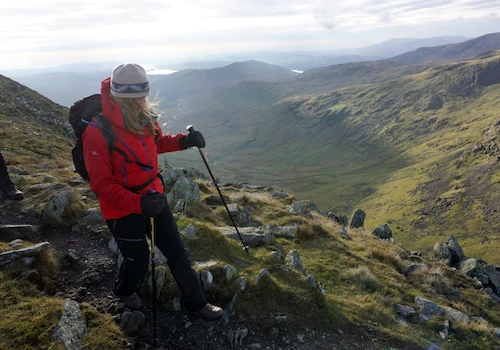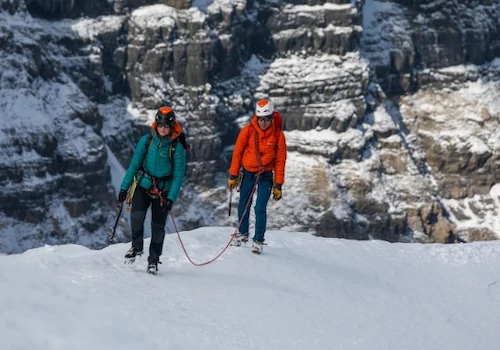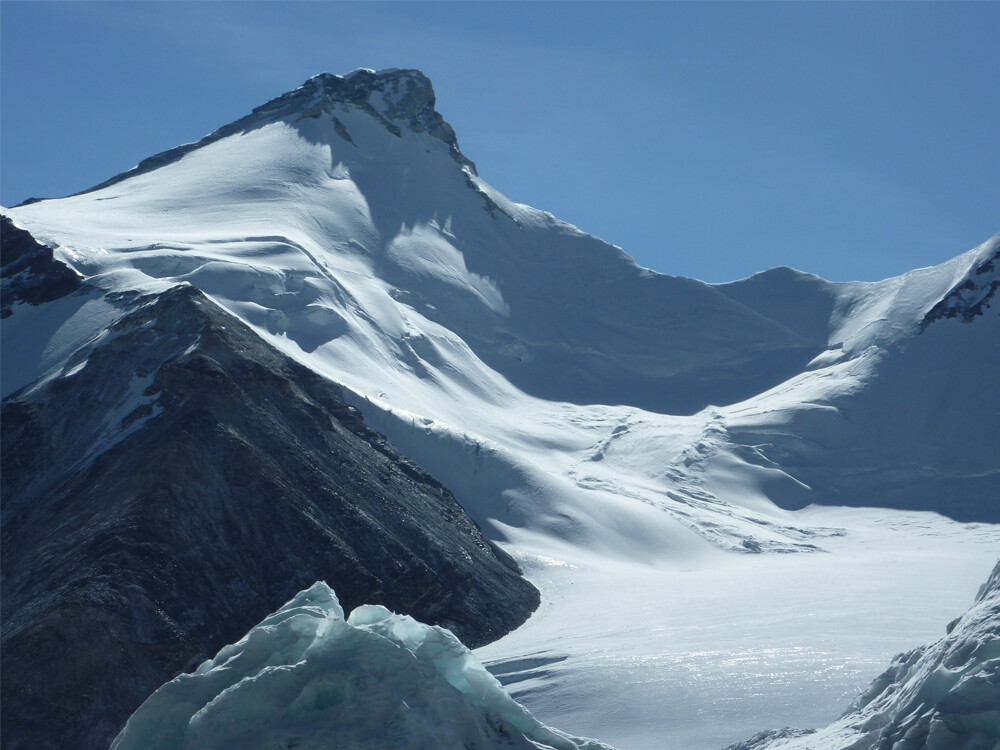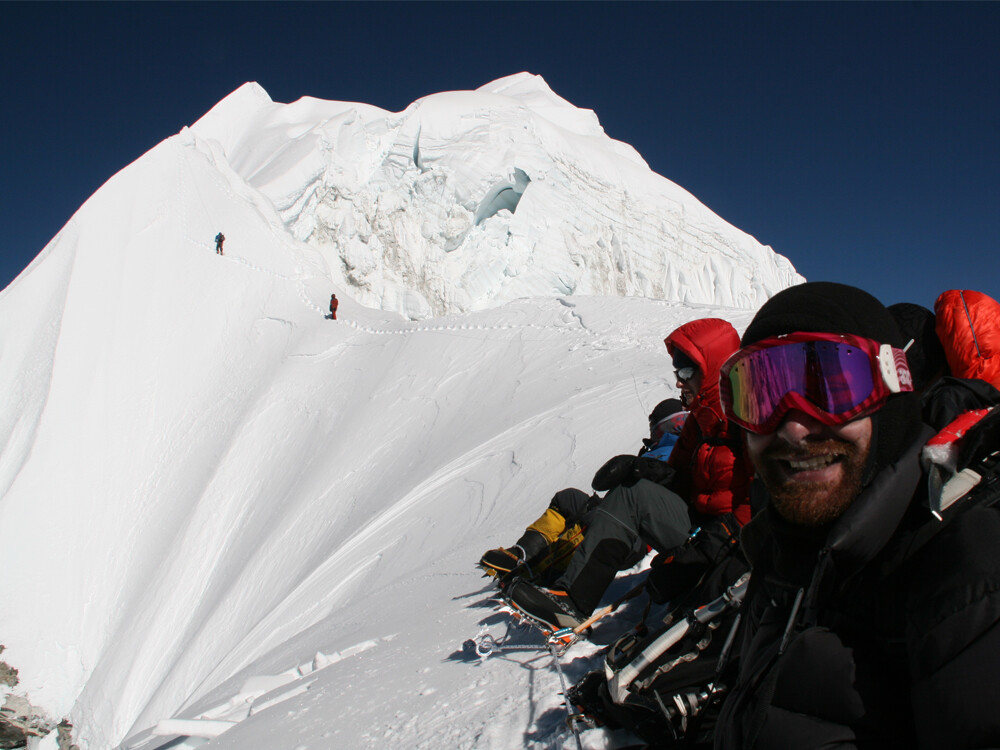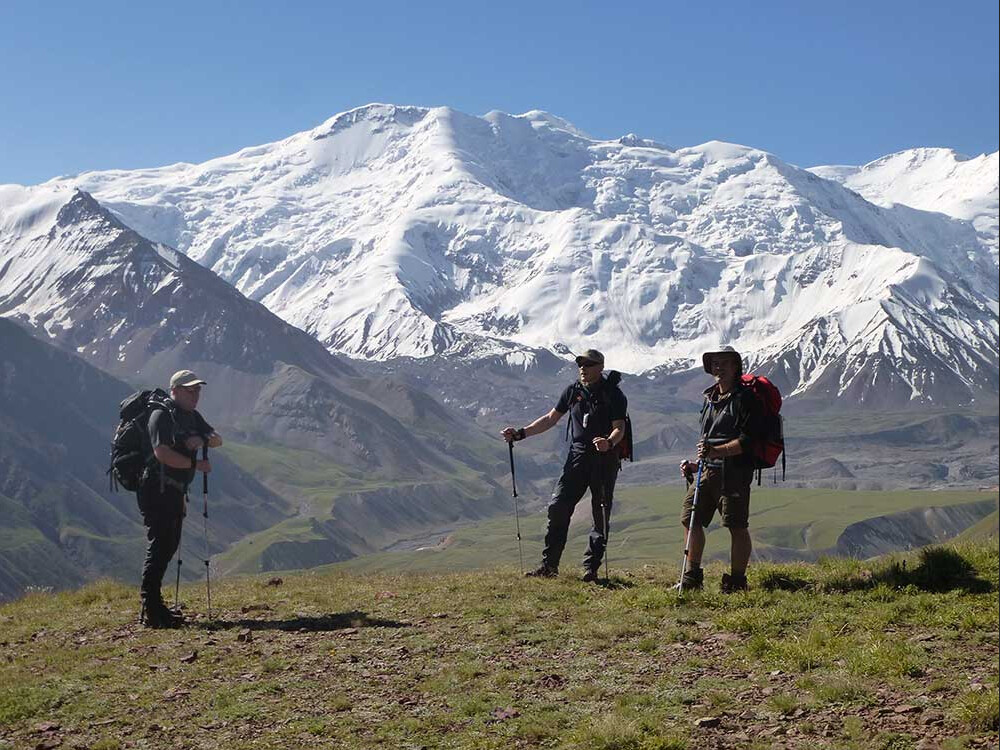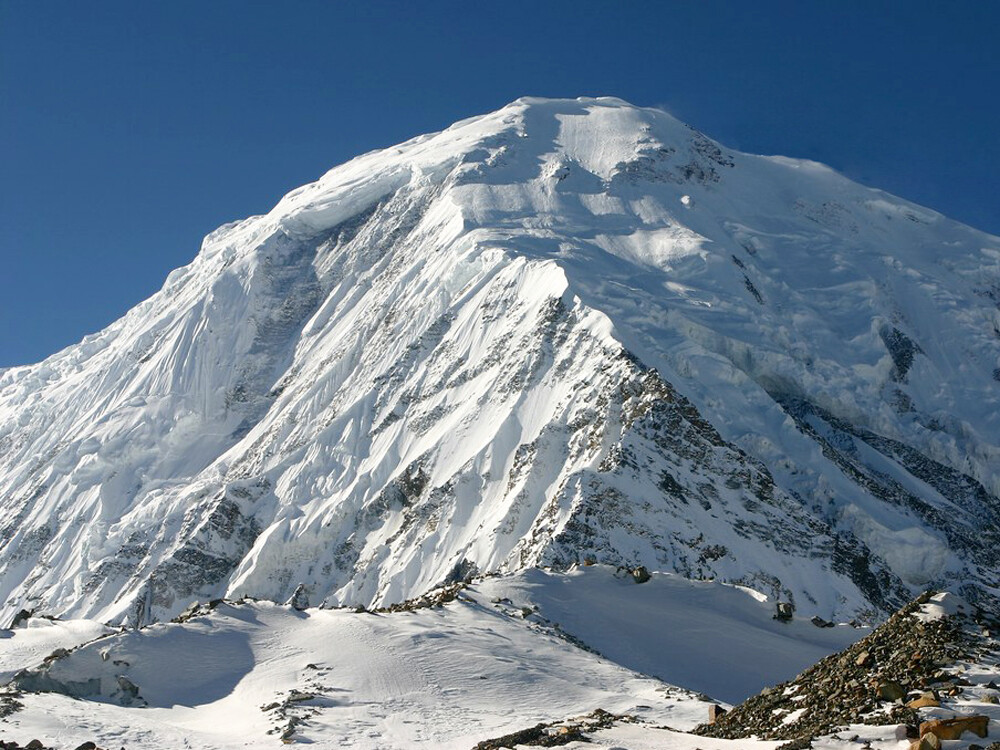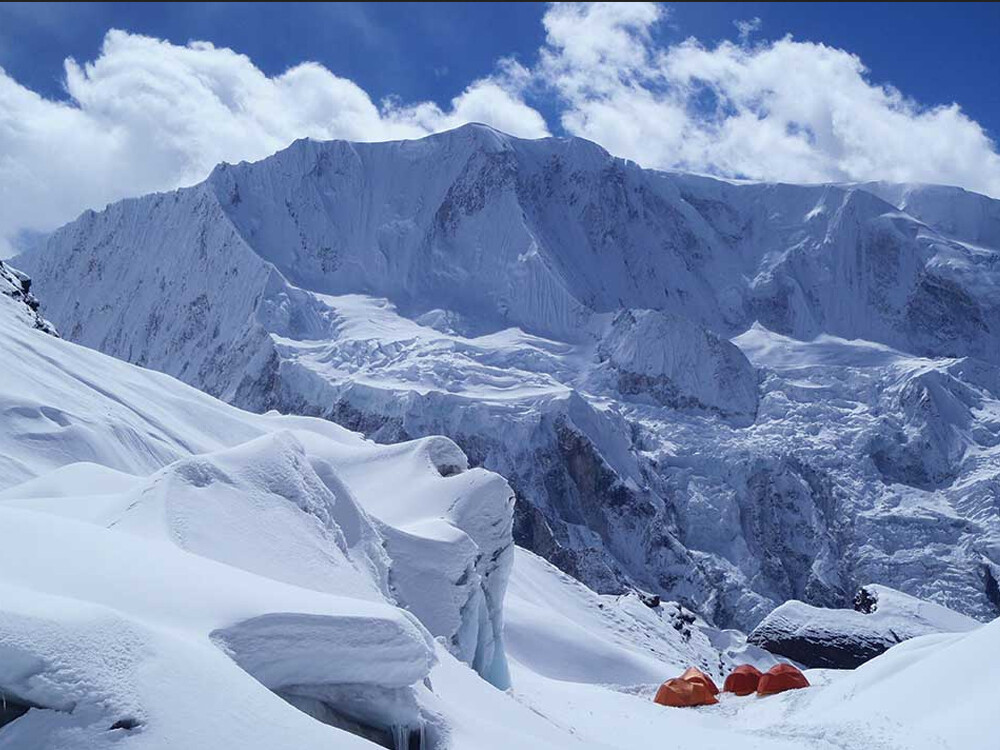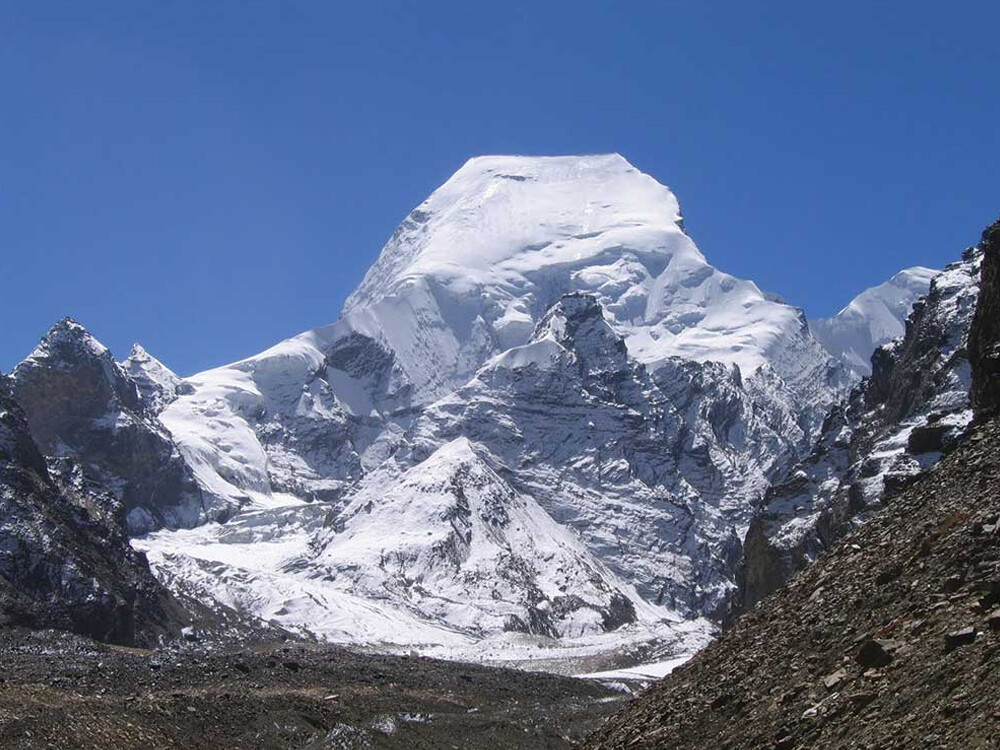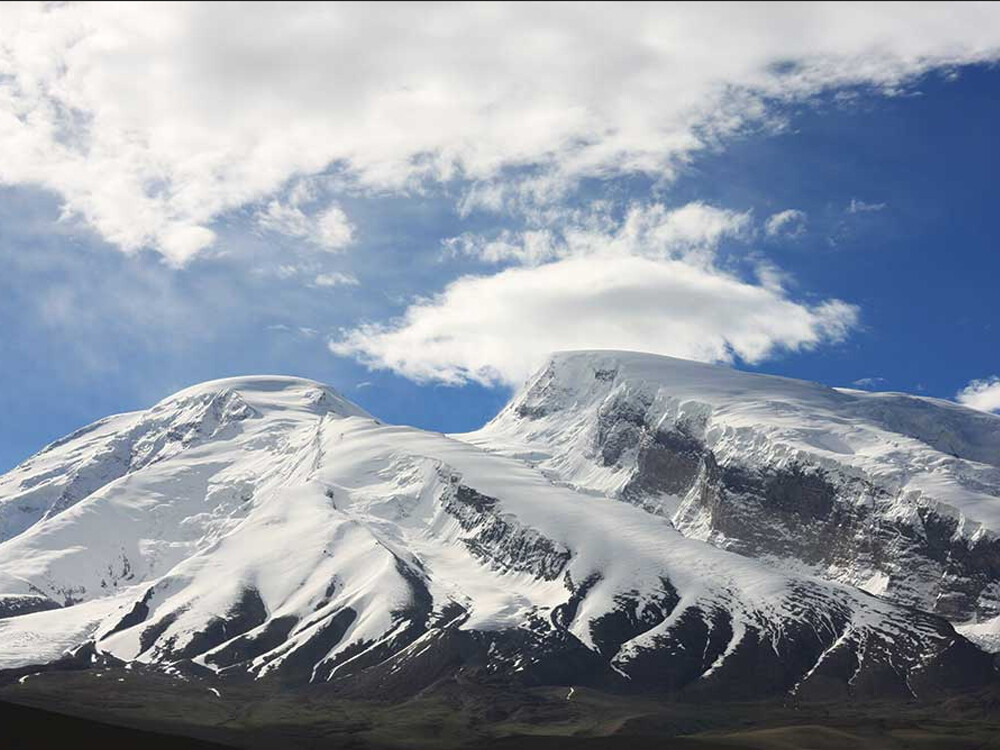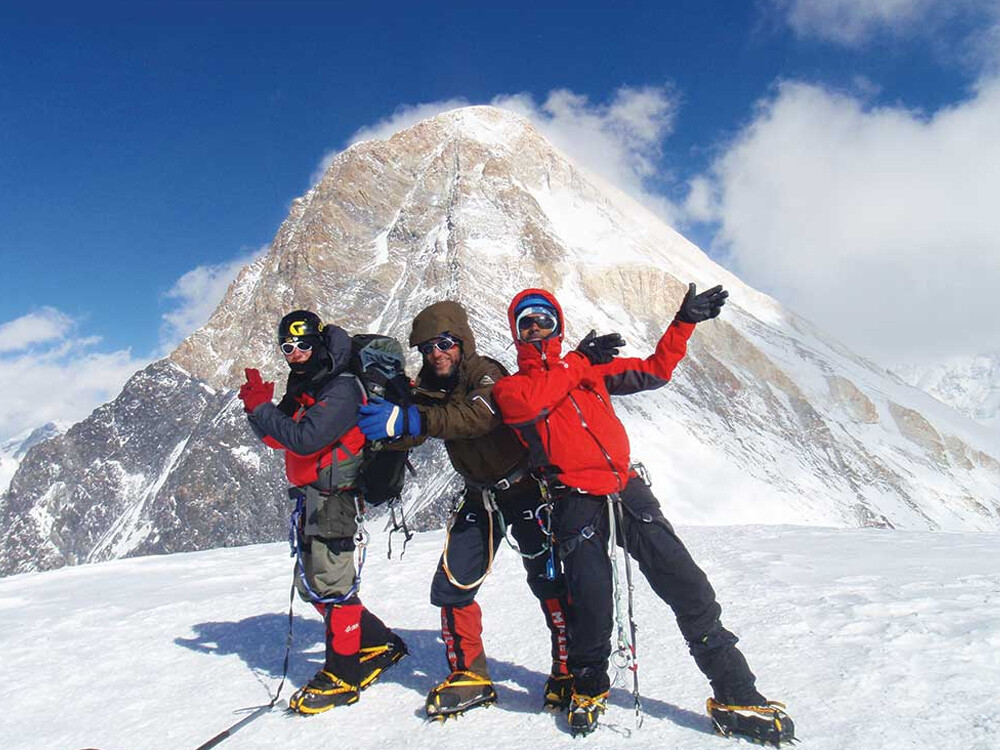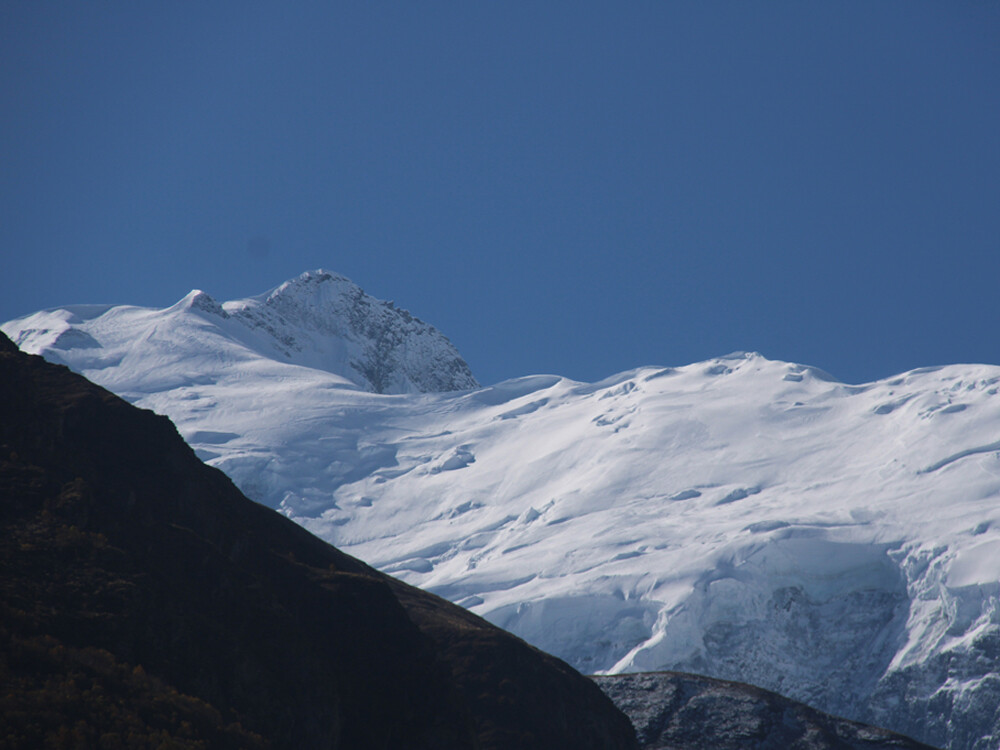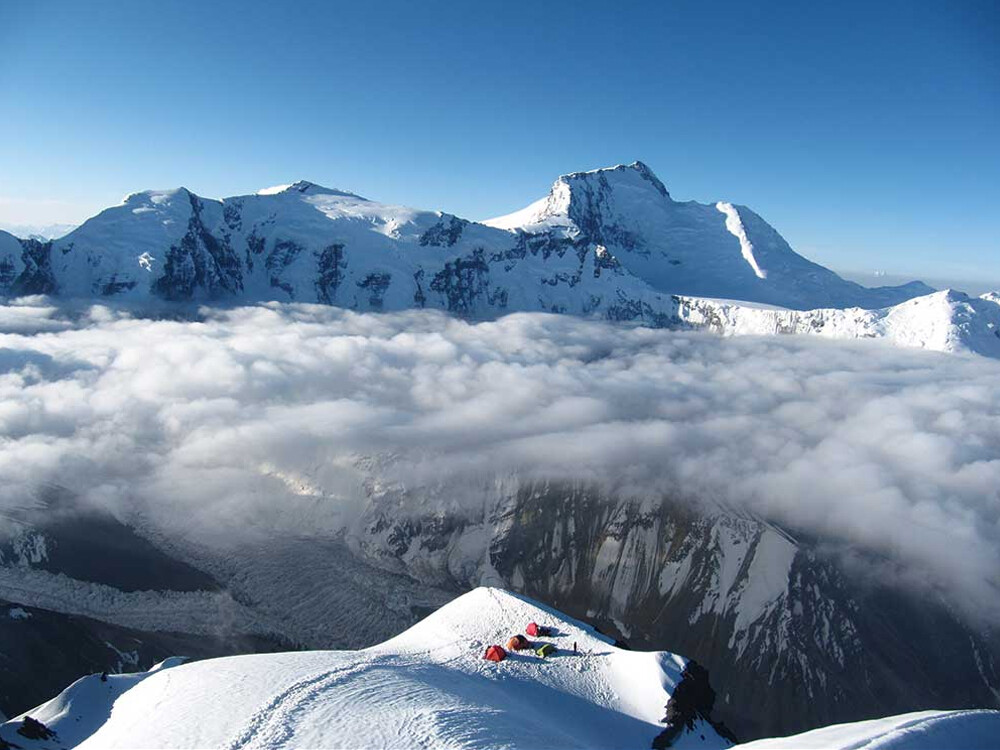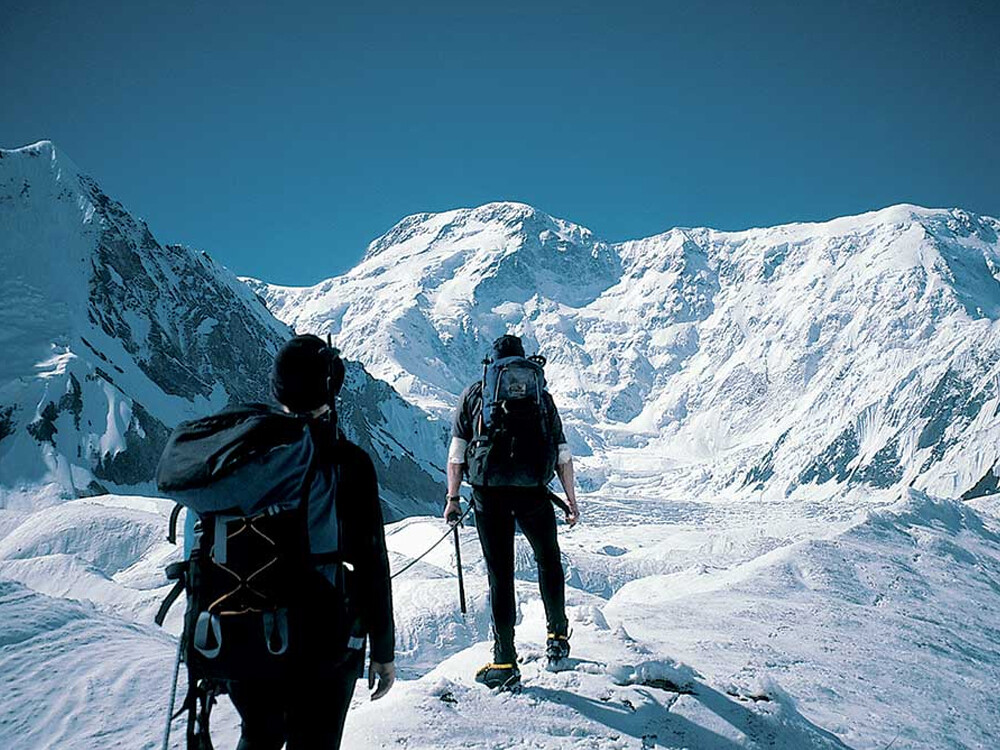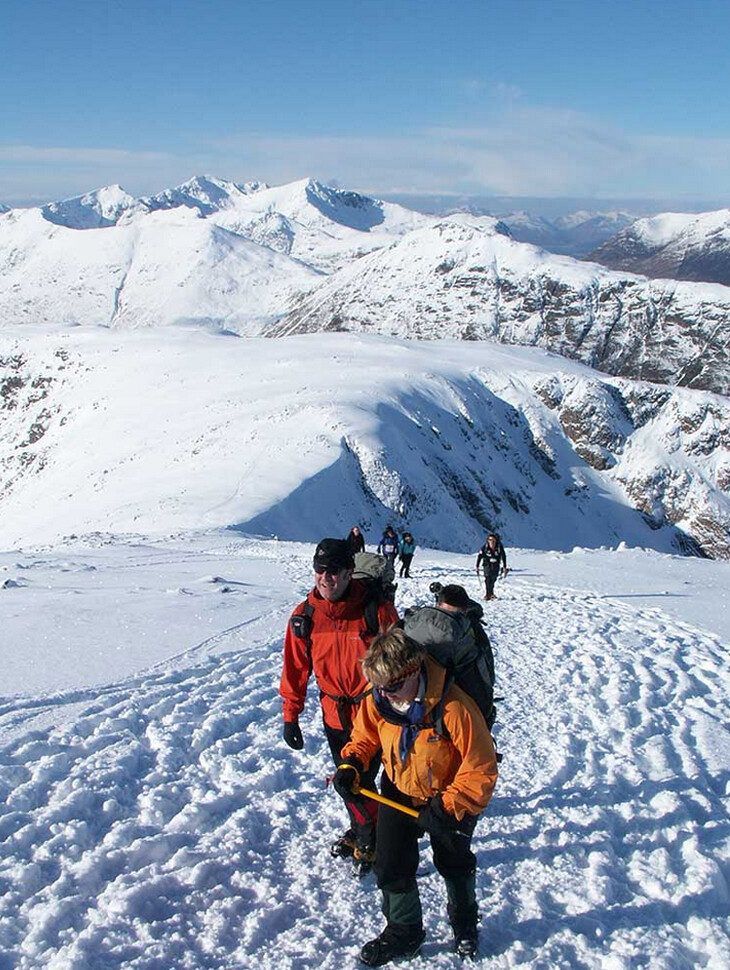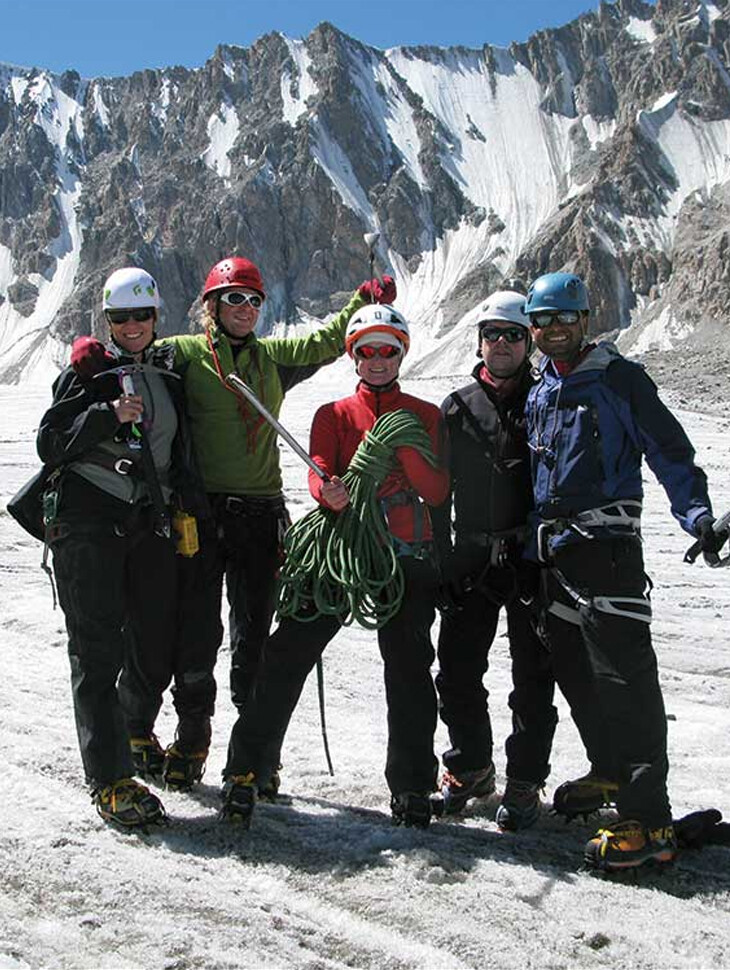
- Expeditions
By Region
By Month
By Grade
By Height
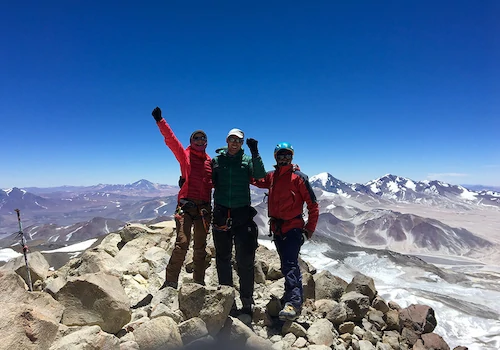
- Treks
- UK & Alpine
- Schools
- Hire
- News
- Shop
What 7000m Peak Should I Climb?
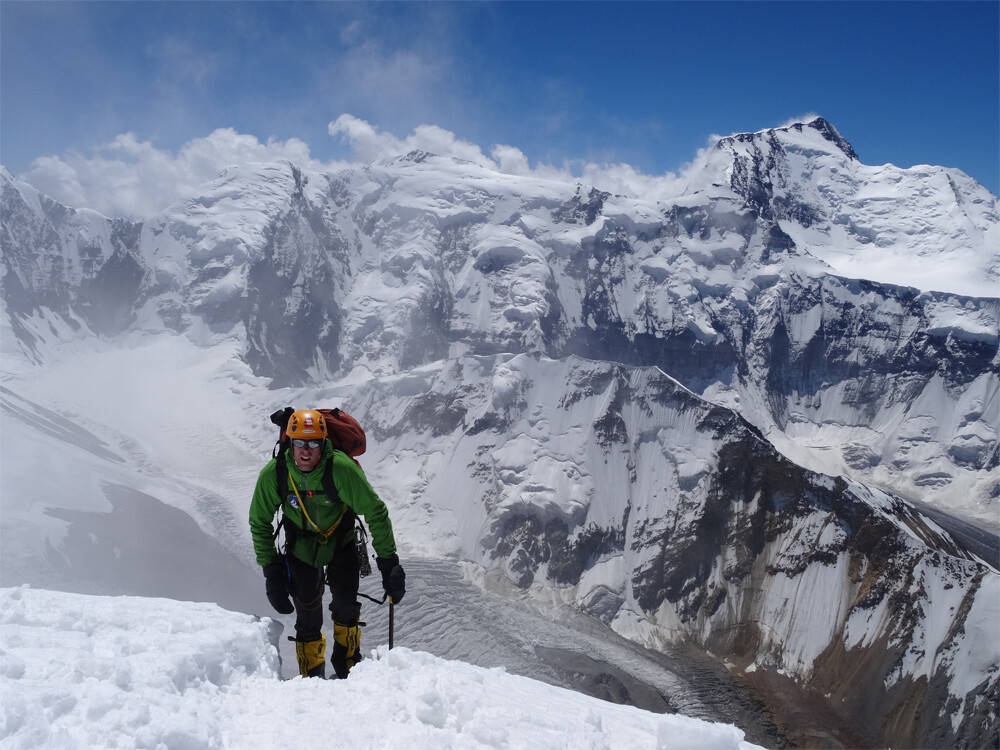
Adventure Peaks offers the most extensive programme of 7000m peaks in the world, so how do they compare and how do you choose the best peak for you.
Do you want the easiest technical challenge? This does not however mean it will give you the most chance of success! For example, Peak Lenin is regarded as the least technical 7000m peaks but due to the length of the summit day and number of camps however many individuals fail to reach the summit as they had interpreted it as an ‘easy peak’ forgetting the physicality or mental toughness of the climb. In contrast a peak like Korzhenevskaya or Baruntse are technically a little more difficult but they achieve greater summit success and are less physically demanding.
Here is the choice and then read on how to choose:
Korzhenevskaya 7105m 3C
Jul-Aug 26 days £5250
Lhakpa Ri & N. Col 7045m 3C
Apr-May 30 days £11,500
Baruntse 7129 3C
Oct-Nov 32 days £7195
Peak Lenin 7134m 2D
Jun-Aug 25 days £3450
Tilicho Peak 7134m 4C
Apr-May / Sep-Oct 29 days £6950
Himlung Himal 7126m
Apr-May / Oct-Nov 30 days £6895
Satopanth 7075m 4C
Sep-Oct 30 days £6950
Muztagh Ata 7546m 2D
Jun-Aug 30 days £5795
Khan Tengri 7010m 5D
Jul-Aug 25 days £4950
Annapurna IV 7525m 4D
Oct-Nov 30 days £7350
Ismoil Somoni 7495m 4D
Jul-Aug 26 days £5450
Pobeda 7439m 5D
Jul-Aug 30 days £4950
Fitness – A common thing we hear prospective clients say is “I run marathons or compete in Triathlons so am I fit enough”? Unfortunately, this does not mean you will cope with the physicality of a 7000m Peak without additional training? Your chance of summit success will be far greater if you train in the mountains and convert your fitness to become mountain fit! You use your muscles in different ways when climbing steeply uphill or are carrying loads. How many marathon runners avoid hilly events so that they can achieve their best time? Try to train in the mountains at least one weekend per month, ascending at least 4,000ft (+1200m) per day, aiming for a total of 8-9,000ft (+2500m) per weekend (i.e. 2 full days).
What Technical Skills will I need to climb a 7000m Peak?
The starting point is crampon and ice axe skills – you should be totally conversant with putting on your crampons unaided, walking freely with them as you would do in normal boots and not having to check yourself before each step (learn to free wheel!). You should know and have practiced ice axe arrest (stopping yourself if you slip)
All 7000m peaks involve glacial travel (unlike Aconcagua which of course is not 7000m), so are you suddenly going to disappear into the void of a deep crevasse. Go without knowledge and it is likely your head will play phycological games with you as you take each worrying step into the unknown. You should complete an Alpine Course? To gain the skills of glacial travel and crevasse rescue, thereby giving you the confidence to negotiate these obstacles at higher altitudes.
Many 7000m peaks will be steeper than anything you have done before and anything graded 3C or above will require at least one abseil (rappel), but many require multiple abseils. This can be very time consuming if you are not well practiced. You should take a mountaineering course that covers this important skill. If you have abseiled in the past practice again before you go.
So, “I am technical competent and fit” , is there anything else I need to know or do?
The answer is often YES! Dealing or coping with the hardship of an extended mountain expedition is tough. The weather and severe cold eats away at you, the food becomes unpalatable (freeze dried meals or repetitive pasta or noodles high on the mountain often becomes the norm). It is easy to carry and quite light weight but is also often the best you can buy locally and something you can cook on a single stove). It can often take determination to force the calories down, but we must get on with it. Going to the toilet in a full-on blizzard, needs must! Melting water to keep hydrated. Feeling sick or lethargic with the altitude makes everything ten times worse. Do you need to have camped before? Yes of course, your tent is your lifeline, your home and your protection from the elements. Understanding what it feels like to be stuck at 6000m plus in a full-on storm can feel quite alarming, some will even think they are going to blow away and die BUT for those with experience enjoyment can be found. Not coping with this kind of hardship perhaps leads to more failures than fitness or technical skills – get out there and camp (preferably in winter) before climbing a 7000m peak as there are no teahouses or alpine huts at this altitude. The more camps above BC the more mentally draining and physically demanding a peak becomes.
Understanding Altitude is a final factor in the mental coping mechanisms of someone’s ability to summit at 7000m. If you haven’t been to at least 6000m it is unlikely you will understand what it takes mentally to cope with an ascent to 7000m. Don’t jump too high too quickly.
Adventure Peaks offers Expedition Skills training course:
The final question “Which is the easiest 7000m peak” and “Which will give me the best chance of success”?
Taking all factors into account and with the appropriate skill level I have placed our 7000m list above in that order!
Korzhenevskaya is likely to give the best success and Pobeda is only for the most determined and experienced mountaineers. Aconcagua a benchmark for some, is easier than any of our 7000m Peaks! Now you can start to choose your next big challenge.
Related Articles

About Dave Pritt
Dave Pritt is the Director of Adventure Peaks. With over 30 years of mountaineering feats, he is a very experienced high altitude mountaineer who has led expeditions to K2, Broad Peak and five Everest expeditions. Dave has completed the 7 summits, led an expedition to Ski the South Pole Last Degree, Satopanth in India and in 2007 he guided Ian McKeever to break the world record for the seven summits in 156 days. He is lucky enough to have climbed on the majority of our advertised peaks, but the Tien Shan remains his favourite destination.

